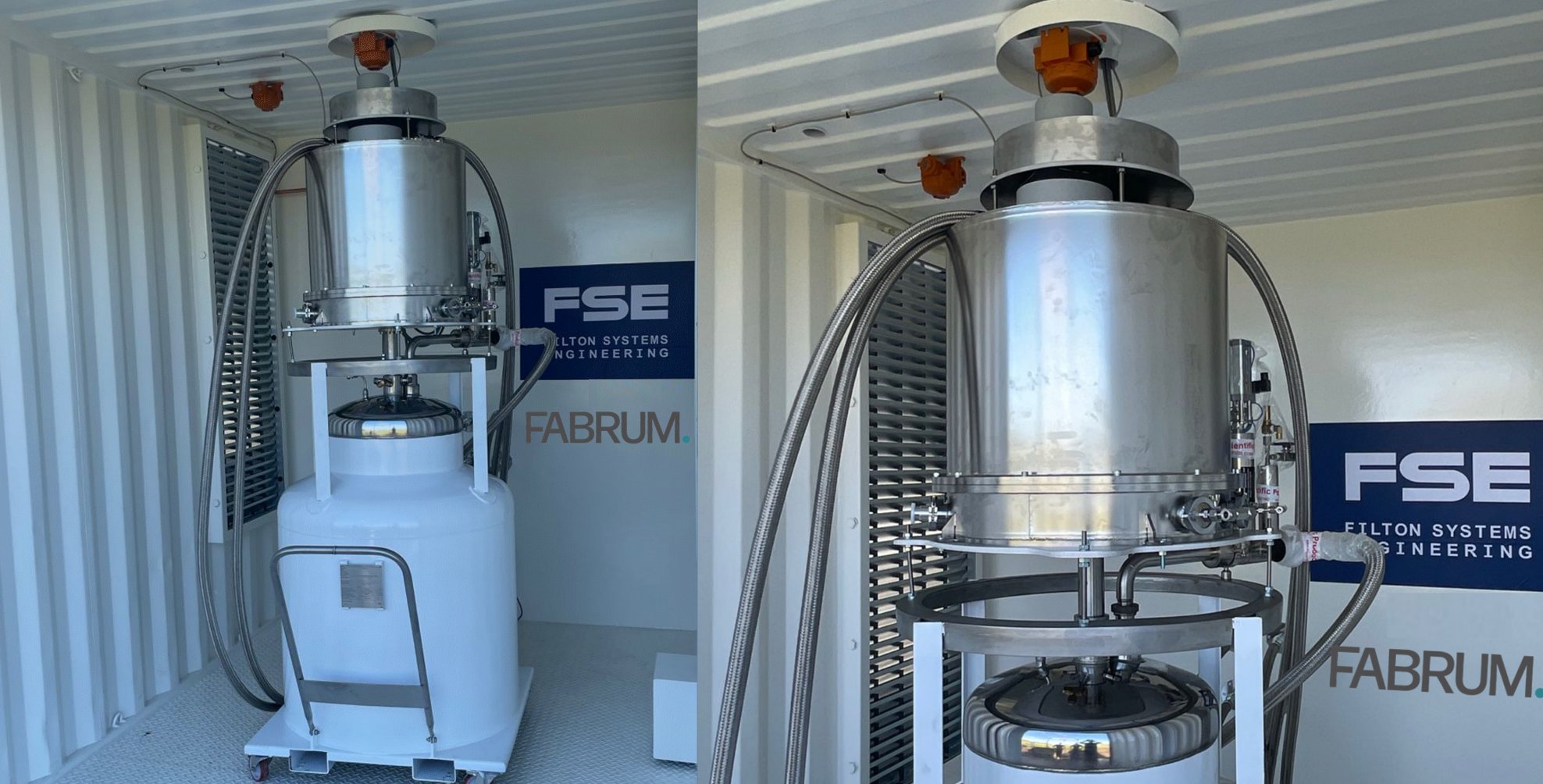Click Here to View This Page on Production Frontend
Click Here to Export Node Content
Click Here to View Printer-Friendly Version (Raw Backend)
Note: front-end display has links to styled print versions.
Content Node ID: 419693
GKN Aerospace is expanding its work on the development of hydrogen-powered aircraft through a new association with specialist partners Filton Systems Engineering (FSE) and Fabrum. The companies are focused on developing fuel system technology to support the new aircraft.
UK-based FSE, which designs fuel, air, hydraulic, inerting, and engine systems, has upgraded its hot and cold fuel test facility to be used to develop both gaseous and liquid hydrogen technology. The Bristol test center can now be employed by GKN and other aerospace companies to evaluate liquid hydrogen’s potential as a fuel for planned test flights and certification work.
Fabrum, which says it specializes in zero-emissions transitions, developed the liquid hydrogen production infrastructure and process for the new facility. This includes equipment for hydrogen conditioning, liquefaction, and liquid hydrogen storage. The New Zealand-based company will be adding further upgrades, including a combination of its cryogenic technology with a membrane-free electrolyzer to avoid dependence on gaseous hydrogen supplies.
“The successful adoption of zero-emissions fuels requires both ground-based infrastructure development for liquid hydrogen provisioning at airports and aircraft that will use it,” said Fabrum’s CEO, Ojas Mahapatra. “Point-of-use liquid hydrogen production is the most economical short- to medium-term solution to enable zero-emission flight. We’ve already proven our ground hydrogen fuel solutions for small- and medium-scale hydrogen production. Now, with FSE, we’re taking these refueling solutions to the aviation industry, right through to an onboard fuel cell.”
GKN jointly designed the new ground-based demonstrator for a 2.4-kW liquid hydrogen fueling system. The project, which has received backing from Innovate UK’s Safe Flight program, is largely intended to assess the safety of liquid hydrogen as a fuel source for new electric aircraft propulsion systems. Airlines such as EasyJet are supporting the development work.
The aerostructures and engine components specialist is investing heavily in work to optimize propulsion system architectures and integrate these with airframes as part of efforts to bring hydrogen-powered airliners into commercial service by 2025. In recent months, it has reported important discoveries from both the H2Gear and H2Jet programs, which respectively focus on hydrogen-electric fuel cell-based powertrains and direct combustion of liquid hydrogen fuel in turboprop and turbofan engines.
The UK-based H2Gear team endeavors by next year to attain technology readiness level (TRL) 4 and complete testing of the cryogenic electric motor and fuel cells. The following year should see the start of subsystem detailed design and testing as the program reaches TRL5 and then in 2025 the culmination of work with ground-based testing of a full system-level propulsion system.
Work on the £54 million project takes place at GKN’s Global Technology Center in Bristol, UK. With government funding behind it, the partners include fuel cell specialist Intelligent Energy, electric motors and control systems group Aeristech, Newcastle University, the University of Manchester, and the University of Birmingham.
In the £2.8 million H2Jet project, which gets run from GKN’s facility in Sweden through 2023, the partners evaluate how engine and airframe architectures will need to adapt to support the direct combustion of hydrogen. Potential applications could include new medium-range, single-aisle aircraft, like those conceived through Airbus’s ZeroE program, which GKN says it would like to join. Other H2Jet partners include the Swedish Energy Agency, Chalmers University of Technology, Lund University, KTH Royal Institute of Technology, University West, Research Institutes of Sweden (RISE), and Oxeon.
